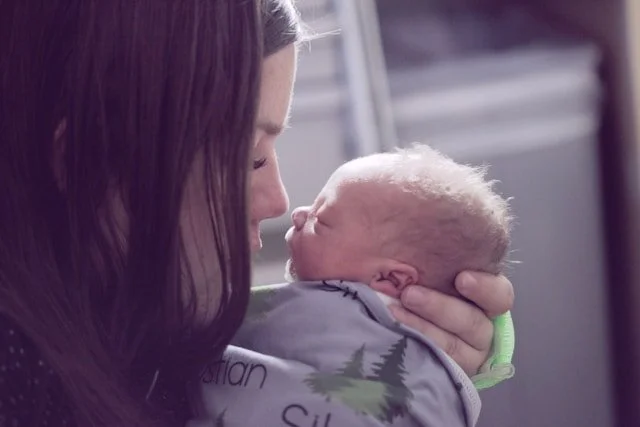Signs & Symptoms of Postpartum Depression
Postpartum depression (PPD) impacts nearly 1 in 8 women. While most people have a basic understanding of what it is, there are some common misconceptions about signs and symptoms.
Some of the things you might think are signs of PPD are actually signs of the “baby blues,” which are far more common for women who have just given birth.
The baby blues can cause sadness, make you feel overwhelmed, and lead to irritability and mood swings. Typically, however, these symptoms are fairly mild and last anywhere from a few days to a few weeks.
Postpartum depression symptoms are often much more severe, and can last for months. Let’s take a closer look at some of those symptoms and what you can do if you’re struggling.
What Causes Postpartum Depression?
Your mind and body go through a lot of changes throughout the pregnancy process and even after giving birth. Many experts believe that PPD is triggered by the sudden drop in estrogen and progesterone after having a baby. This sudden hormonal shift can lead to mood swings and can create active changes within the brain.
PPD can also feel like a very personal issue. You might be struggling with the way your body has changed. You might feel overwhelmed and tired, scared about parenthood, or even anxious.
Some people are more susceptible to PPD than others. For example, if you have a history of depression or other mental health issues, you might be more likely to struggle. Women without a support system, those with financial issues, or other underlying health issues might also be more likely to experience PPD.
What Are the Signs?
Postpartum depression can impact women differently. You might not experience all of the stereotypical symptoms. But it’s important to listen to your mind and body and don’t assume that what you’re feeling is “normal” or that it will pass quickly. The baby blues are often manageable and allow you to still function normally. PPD often feels like a completely overwhelming experience.
With that in mind, some of the common symptoms of postpartum depression include:
Persistent feelings of sadness
Mood swings
Anxiety
Withdrawing from loved ones
Low energy and fatigue
Difficulty concentrating
Loss of interest
One of the most prominent symptoms that can also be the most frightening is how you might feel about your baby. It’s not uncommon for women dealing with PPD to struggle with scary or disturbing thoughts about self-harm or about some kind of harm coming to their newborn.
Those thoughts can then trigger feelings of guilt, creating a vicious cycle of depression that’s hard to escape on your own.
What Can You Do?
Understand that having postpartum depression isn’t a reflection of who you are as a parent. It doesn’t make you a “bad” mother and it’s not something that will last forever.
Even untreated, PPD typically goes away on its own. However, it can take weeks, months, or even up to a year for you to start to see improvement without help. The good news? You don’t have to let your symptoms overwhelm you for that long.
There are many things you can do to manage your symptoms every day, including self-care. It isn’t selfish — it’s necessary. Ensure you get enough sleep, eat a healthy diet, and stay physically active. Lean on your support system for both practical and emotional help. If someone can watch the baby while you take a nap or get groceries for you, let them.
Most importantly, don’t hesitate to reach out to a professional. Therapy is a great way to better understand your PPD and work on effective strategies that will help you overcome it, so you can enjoy motherhood and everything that comes with it. Don’t feel like you have to struggle alone. Feel free to contact me to set up an appointment for depression therapy.

